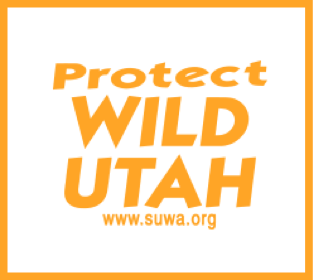|
SUWA Protests Sale of Oil and Gas Lease Parcels In Proposed Wilderness Areas The Southern Utah Wilderness Alliance has filed a formal protest with the Bureau of Land Management for placing in its quarterly offering of oil and gas leases nine parcels that fall within proposed wilderness areas. The BLM has offered 92 parcels this quarter, nine of which would impact public lands tapped for protection as wilderness in America's Redrock Wilderness Act, a bill sponsored by 157 members of U.S. House of Representatives and a dozen in the Senate. SUWA's protest urge the BLM to remove from consideration the nine parcels and to comply with environmental laws and regulations at the lease stage to insure that informed decisions are made. "We want to cure the problems associated with oil and gas development before the symptoms of drilling and road building plague wilderness lands," said Herb McHarg, SUWA's Moab representative. BLM has no obligation to issue leases, and the agency is required to comply with environmental laws and regulation. The problem with offering these leases, however, is that once given, companies can apply for permits to drill and build roads. Since the BLM does not typically prepare a National Environmental Policy Act (NEPA) document at the time of lease issuance, irretrievable commitments of resources are made before the impacts of the decision are fully analyzed. "This bureaucratic circular reasoning must be broken so environmental laws can operate appropriately to protect these pristine open spaces from unnecessary mining," said McHarg. The BLM has generally exercised its authority and not offered leases in Congressionally proposed wilderness areas, but has lately offered leases that affect lands in America's Redrock Wilderness Act, a bill supported by 184 citizens groups across the country. That legislation is a comprehensive state-wide wilderness bill that would protect 9.1 million acres of BLM lands in Utah. It reflects a proposal for wilderness designation put forward by citizens of Utah. "It is in the best interest of the public, the agency, prospective lessees and the environment to halt leasing within congressionally proposed wilderness areas," said McHarg. "It stops conflicts before they get started." |
|
|

 Southern Utah Wilderness Alliance
Southern Utah Wilderness Alliance
Protecting Utah's Redrock Country
